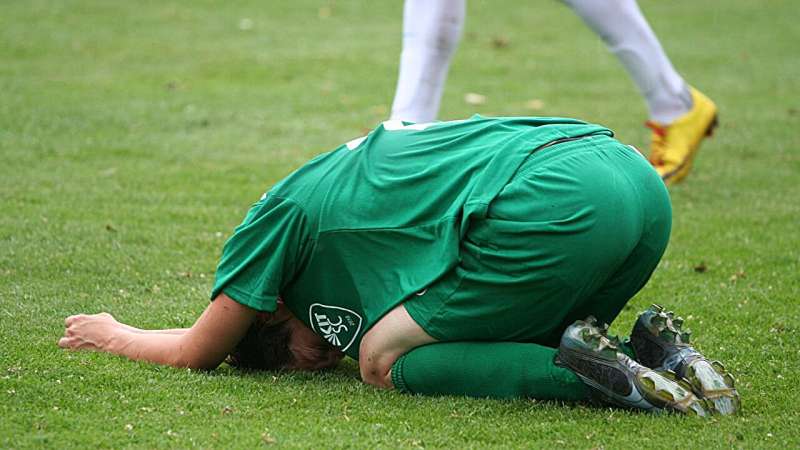This article has been reviewed according to Science X's editorial process and policies. Editors have highlighted the following attributes while ensuring the content's credibility:
fact-checked
trusted source
proofread
Soccer study provides insights into the psychology of crises

UEFA EURO 2024 is about to start, with all its hopes of victory and fears of defeat. Researchers at the Karlsruhe Institute of Technology (KIT) investigated how failure affects players' psyches and how the dreaded downward spiral of failure can be counteracted.
In the German Journal of Exercise and Sport Research they show how lasting crises begin with unexpected disappointments and then escalate psychodynamically at both the individual and team levels. The authors call for a stronger focus on strategies for preventing such crises, or for overcoming them when they arise.
As the European Championship kicks off, some soccer fans will think back on the history of sometimes dramatic disappointments suffered by the German men's team since its World Cup win in Brazil. The coming matches will show whether a new summer wonder will end the 10-year dry spell. What is certain, though, is the kind of negative and lasting forces that team crises like this can unleash.
A research team headed by Professor Darko Jekauc, a sports psychologist at KIT's Institute of Sports and Sports Science (IFSS), chose this as its starting point. "Our study examines the deeply rooted psychological and social mechanisms that affect soccer teams in times of crisis," Jekauc said. "The results give us a fairly complete understanding of how crises develop in soccer and what factors promote their development."
A vortex of negative forces
Qualitative analysis of in-depth interviews with six current and three former professional soccer players showed that a crisis begins when a team fails to meet its own expectations or those of external stakeholders. In players, this can lead to feelings of pressure, anxiety or decreased self-confidence, and to physical symptoms such as elevated blood pressure.
At the team level, these affective states provide fertile ground for toxic and self-reinforcing group dynamics characterized by loss of motivation, impaired communication, conflicts and weakening cohesion.
According to the scientists, this complex mix often brings about an overly defensive mindset on the field, including a desire to avoid making mistakes. The resulting decline in team performance usually leads to further poor results and perpetuates the crisis, which the interviewed players referred to as a vicious circle, negative spiral, or vortex.
Crisis resilience for soccer players
Sports scientists from KIT and TU Braunschweig have come to the conclusion that crisis management training should aim to manage expectations, promote positive affective states, and support healthy motivation for all team members. A professional team's immediate surroundings are especially important in this regard.
"It's crucial in times of high expectations and public pressure for coaches and managers to proactively develop supporting strategies that strengthen player resilience and sustain team dynamics," said Jekauc, who heads the Department of Health Education and Sport Psychology at the IFSS.
In acute crises, intervention could include team-building activities, conflict resolution training, and psychological support for players experiencing especially high levels of emotional stress.
"The study shows us that a team crisis is about far more than things you can see on the field," said Jan Spielmann, who heads the TSG ResearchLab and is head sports psychologist for the Bundesliga club TSG Hoffenheim.
"The implications are clear: raised awareness of the issue among players and training staff, more monitoring, and more psychological expertise in crisis intervention communications." TSG ResearchLab is already planning further studies on crises in soccer in cooperation with KIT.
More information: Darko Jekauc et al, Insights from elite soccer players: understanding the downward spiral and the complex dynamics of crises, German Journal of Exercise and Sport Research (2024). DOI: 10.1007/s12662-024-00968-0



















